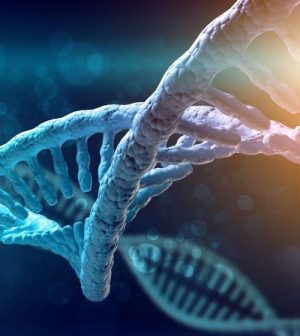- Could Your Grocery Store Meat Be Causing Recurring UTIs?
- Are You Making This Expensive Thermostat Error This Winter?
- Recognizing the Signs of Hypothyroidism
- 10 Strategies to Overcome Insomnia
- Could Artificial Sweeteners Be Aging the Brain Faster?
- Techniques for Soothing Your Nervous System
- Does the Water in Your House Smell Funny? Here’s Why
- Can a Daily Dose of Apple Cider Vinegar Actually Aid Weight Loss?
- 6 Health Beverages That Can Actually Spike Your Blood Sugar
- Treatment Options for Social Anxiety Disorder
‘All of Us’: Big U.S. Genetics Study Is Already Helping Participants

More than 155,000 people who have taken part in a massive genetic study orchestrated by the U.S. National Institutes of Health (NIH) have already gotten something in return — personalized DNA results that tell them whether they have an increased risk for certain health conditions.
Called “All of Us,” the study aims to eventually include at least 1 million people, in an effort to accelerate medical breakthroughs.
“Knowledge is powerful. By returning health-related DNA information to participants, we are changing the research paradigm, turning it into a two-way street — fueling both scientific and personal discovery that could help individuals navigate their own health,” said Dr. Josh Denny, chief executive officer of the All of Us Research Program.
“This type of partnership with our participants is crucial for building trust and fulfilling the commitment we made to drive research that can offer meaningful insights for all,” Denny said in an NIH news release.
Already, the program has made a difference.
“I kind of shudder to think about what could happen if I hadn’t known this,” Rachele Peterson, an NIH employee who participated in the study, told the Associated Press.
The Philadelphia woman was told she was at an increased risk for breast and ovarian cancer because she carries the BRCA-2 gene.
Peterson, who recently became the project’s chief of staff, said the knowledge “allows you to take charge,” and added that she plans to discuss options with her doctor such as increased breast cancer screening or whether to remove her ovaries as a precaution.
The project also tackles issues of health care equity, with about 80% of the research participants from communities that have historically been underrepresented in medical research. Nearly 50% are from a racial or ethnic minority group.
Participants initially began receiving data on ancestry and traits back in December 2020. People can choose whether they want to receive any health-related results at all. Those who opt in get an alert several weeks later.
Genetic counselors are available to answer questions, and meet with participants and their family members or health care provider.
The program’s Hereditary Disease Risk report includes 59 genes and variants associated with serious health conditions, including specific cancers, heart conditions and blood disorders. About 2% to 3% of people in the study will end up receiving a result that shows a variant that is disease-causing, the researchers said.
Those whose results show they may have an increased risk of a serious health condition will be offered a clinical DNA test through the program’s genetic counseling resource, which will be conducted outside of the program at no cost.
Participants can also choose to receive a “Medicine and Your DNA” report. This includes seven genes that are known to affect how the body processes certain medicines. Participants are still advised to consult their health care provider before making any medication changes.
“Our participants care about their health, as well as medical research. We strive to share information with them in a responsible, accessible and impactful way that honors their trust in us and provides them with tools to continue to learn more about their own health,” said Karriem Watson, All of Us chief engagement officer.
“This intentional focus brings us one step closer to advancing health equity for our participants, and can serve as a catalyst for change to increase representation in medical research,” he said in the NIH release.
“Returning information in research programs is the ethical choice, but [it] must be done responsibly and equitably,” Alicia Zhou, chief science officer of Color Health Inc., the genetic counseling resource for the All of Us Research Program, said in the release. “All of Us is setting a new precedent for longitudinal research programs.”
More information
The U.S. National Library of Medicine has more on how gene variants affect health and development.
SOURCES: U.S. National Institutes of Health, news release, Dec. 13, 2022; Associated Press
Source: HealthDay
Copyright © 2026 HealthDay. All rights reserved.










